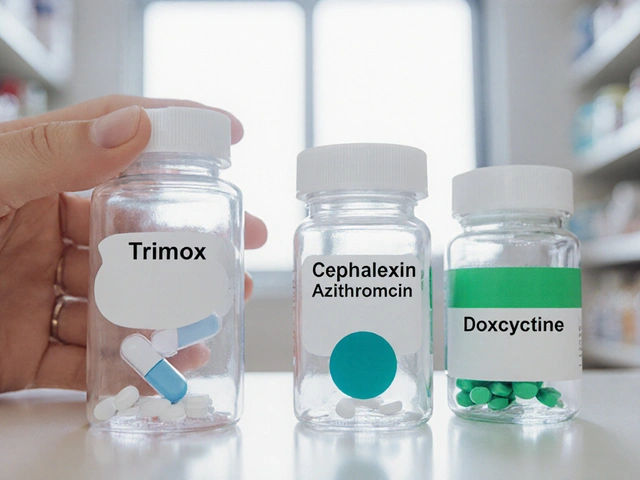Anti-Diarrheal Medication: What Works, What to Avoid, and Real Options
When your gut decides to revolt, anti-diarrheal medication, a class of drugs designed to slow intestinal movement and reduce fluid loss during acute diarrhea. Also known as antidiarrheals, these are among the most common over-the-counter remedies people reach for—but not all of them are created equal. You might grab loperamide at the pharmacy, or reach for bismuth subsalicylate after a bad taco. But do you know what’s actually happening in your body? Or why some cases of diarrhea shouldn’t be stopped at all?
Loperamide, a synthetic opioid that acts on gut receptors to slow motility. Also known as Imodium, it’s the go-to for quick relief when you’re stuck far from a bathroom. Then there’s bismuth subsalicylate, a compound that reduces inflammation, neutralizes toxins, and coats the gut lining. Also known as Pepto-Bismol, it’s not just for diarrhea—it helps with nausea and heartburn too. These two are the heavyweights, but they’re not magic bullets. If your diarrhea is caused by an infection like food poisoning, stopping it too fast can trap harmful bacteria inside you. That’s why doctors often say: let it run for 24–48 hours unless you’re dehydrated, elderly, or have a weakened immune system.
Anti-diarrheal medication doesn’t fix the root cause. It just buys you time. And sometimes, that time matters—like when you’re traveling, working, or caring for a kid. But it’s also easy to overuse. People take it daily for IBS-D, not realizing it can lead to constipation, dizziness, or worse, heart rhythm issues with high doses. There’s no one-size-fits-all. Your body’s response depends on what triggered the diarrhea in the first place: stress, antibiotics, a virus, or something you ate.
What you’ll find in this collection aren’t just product reviews. These are real stories and science-backed comparisons: how one person managed chronic diarrhea with dietary tweaks instead of pills, why some antibiotics make diarrhea worse, and which OTC options actually work for kids versus adults. You’ll see how bismuth subsalicylate compares to probiotics, why loperamide isn’t always the best choice for long-term use, and what alternatives doctors recommend when standard meds fail. This isn’t about quick fixes. It’s about understanding your gut so you can choose wisely—before you reach for the next bottle.

Can Loperamide Help Manage Diarrhea in Inflammatory Bowel Disease?
Loperamide can help manage diarrhea in inflammatory bowel disease by slowing gut movement and firming stools. It's not a cure, but many patients use it safely to regain daily control. Learn how to use it effectively and when to seek other treatments.
Detail




